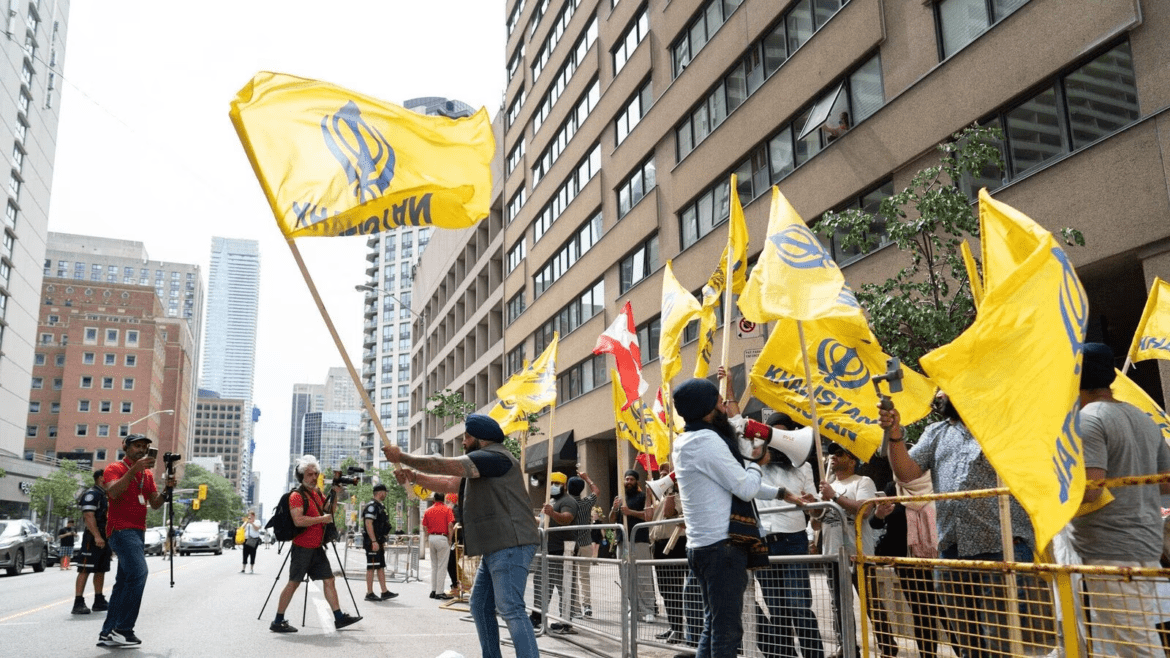AI Generated Summary
- By allowing Khalistan supporters to continue in a business-as-usual way, the Trudeau administration is not only failing in its duty to maintain public order but also deliberately trying to hurt Indian sentiments.
- The support he and his colleagues in the Liberal Party have given to Khalistanis and the rise of Sikh-Canadian political leaders with separatist leanings could backfire spectacularly, prompting Quebec activists to reignite their own independence demands.
- It has allowed Khalistan extremists to thrive in Canada, which in turn has led to an increase in anti-Indian sentiment and violence.
There is a glaring double standard in the outrage or lack thereof about the violent transgressions of Khalistani extremists. This open incitement to violence is flippantly written off as mere expressions of opinion. Yet, these very opinions place Indian diplomats, Sikhs, and citizens of certain western countries in the crosshairs of both extremist groups and potential lone-wolf assassins.
Canada’s rather bland response to India’s concerns about a Khalistan rally on 8 July in Toronto and Vancouver is nothing short of astounding. The laissez-faire attitude towards Khalistan separatist activities in Canada is disconcerting, to say the least. The glibness of Foreign Minister Melanie Joly’s statement that Canada takes its obligations under the Vienna Conventions seriously does little to assuage India’s fears.
The inaction in the face of threats against Indian diplomats demonstrates Canada’s lackadaisical approach toward its international treaty obligations. The horrific memory of the 1984 kidnapping and murder of Ravindra Mhatre, a diplomat in the UK, by terrorist sympathizers still lingers. Is the Canadian government’s response truly adequate considering the gravity of the threat?
Khalistan extremists are not just a concern for India; their significant omission of West Punjab, now Pakistan, in their separatist ambitions points to a potential international crisis. This also reveals their funders and instigators, implying an international network of separatist sympathizers (ISI, Pakistan).
Western leaders tend to wrap themselves in the mantle of ‘freedom of expression’ when incidents targeting India occur, twisting a detestable act into a virtuous one. They hypocritically uphold democracy by enabling forces that undermine the sovereignty of other nations, especially those outside their Western clique.
Canadian Prime Minister Justin Trudeau’s wavering stance is neither rare nor unique. By allowing Khalistan supporters to continue in a business-as-usual way, the Trudeau administration is not only failing in its duty to maintain public order but also deliberately trying to hurt Indian sentiments.
Surely no leader would want to harbour such dangerous elements in their backyard. So that leaves us with the crucial question: does Trudeau possess the maturity to comprehend the situation’s severity?
Trudeau’s evocation of ‘diversity’ to justify Canada’s inaction on anti-Indian activities is an old and worn excuse. It has allowed Khalistan extremists to thrive in Canada, which in turn has led to an increase in anti-Indian sentiment and violence.
It begs the question: Why is Canada allowing its soil to be used as a breeding ground for hostility against another democratic country? This kind of ‘freedom of expression’ is undeniably an abuse of the concept. The Khalistan agenda has been overwhelmingly rejected in Punjab; why then should a small minority dictate the narrative in Canada?
Canada’s reaction to French president Charles de Gaulle’s controversial “Vive le Québec libre!” declaration in 1967 should serve as a reminder. The outrage was immense; yet, Canada seems unconcerned when similar separatist sentiments are aired on its soil against India.
Prime Minister Trudeau needs to reconsider his position. The support he and his colleagues in the Liberal Party have given to Khalistanis and the rise of Sikh-Canadian political leaders with separatist leanings could backfire spectacularly, prompting Quebec activists to reignite their own independence demands.
Pandering to Khalistani politics could well be the undoing of Canada itself. This hypocritical approach is not just a problem for India and Canada, but a potential crisis for global diplomacy.




